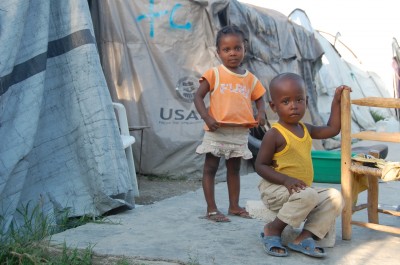Haiti’s devastating earthquake hit on January 12, 2010. It affected everyone in Haiti, and continues to affect those who lost friends and family as well as homes and businesses.
While significant money and effort have been marshaled to rebuild, much remains to be done. Solving one of Haiti’s most important human rights challenges must remain a priority. Impoverished families are vulnerable to child slavery.
The 2013 Walk Free Global Slavery Index lists Haiti as the world’s second-worst spot for slavery prevalence, with more than 200,000 people enslaved today. Most are children sent from poor homes to wealthier ones to work as “restavek” domestic servants.
FTS has been working with our Haitian front line partner organization, Fondasyon Limye Lavi (FLL), to combat the deeply-entrenched restavek system. When the quake hit, we supported the deployment of a team to train humanitarian workers on how to recognize victims of restavek slavery during the family reunification process. This has kept many children from entering or re-entering domestic slavery.

Children in earthquake refugee camp | FTS photo/FitzPatrick
Since the earthquake, FTS and FLL have worked to empower rural communities to bring restavek children home to their families, provide them with aftercare and education, and prevent many more from entering into domestic slavery.
On this anniversary, it’s important to reflect that while progress has been made on restavek slavery, much more is needed.
Two-thirds of restavek children are girls, and passage of an International Violence Against Women Act in the U.S. Congress would focus resources and programs on preventing violence before it starts as well as addressing existing cases, according to our colleagues at Women Thrive.
As well, they say, Congresswoman Frederica Wilson’s resolution on reducing gender-based violence could have a significant impact in Haiti.
Editor’s note: Christy Gillmore is Free the Slaves program manager for Haiti. Learn more about our work in Haiti on the FTS Haiti webpage.
